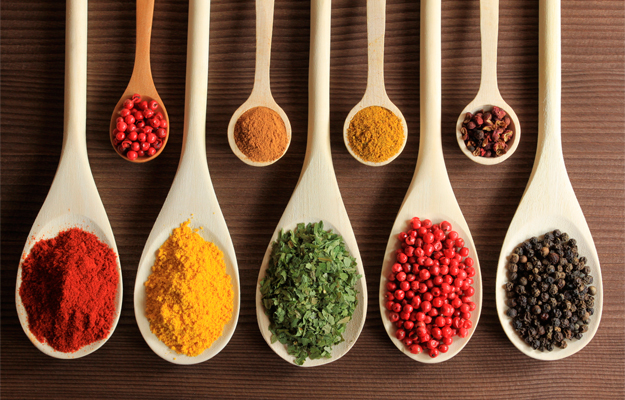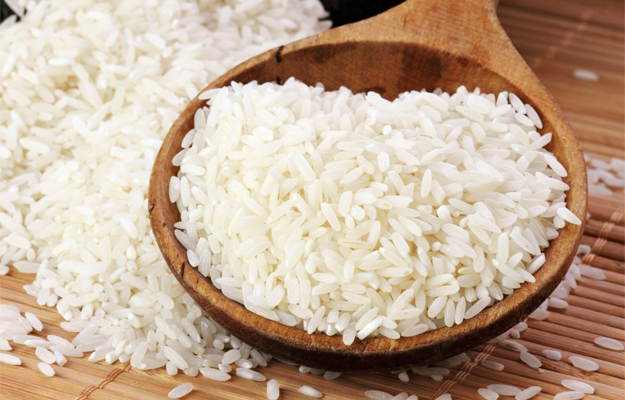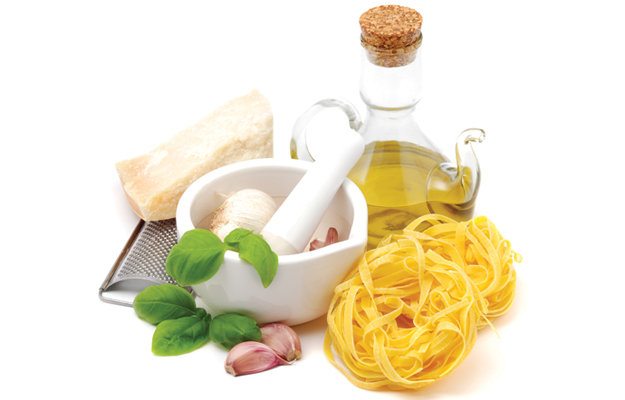
For most of us, dining at restaurants or relying on takeout for every weeknight dinner is not an ideal option. The calories and dollars add up when a simpler option is waiting for you right in your pantry. Stock your kitchen with these quick meal fixes and you'll never have to ask again, “What's for dinner?”
Extra-Virgin Olive Oil
No pantry should ever be without this heart-healthy, antioxidant-rich oil. In most cases, olive oil can be used as the perfect healthy substitute for vegetable oil, which offers no nutritional benefits and high amounts of dangerous fats. Olive oil is rich in taste and heats quickly, making it a cook's dream ingredient.
Garlic
Garlic is one of the healthiest, most versatile herbs you can find. It packs tons of health perks, like aiding in preventing heart disease and lowering cholesterol. It can serve as a standout ingredient in almost any dish, and will have your kitchen smelling like the home of a professional chef. With endless ways to prepare it (slicing, dicing, roasting, crushing, mincing), garlic is a flavorful pantry superstar that should never be overlooked.

A Stocked Spice Rack
After a pinch of this, a shake of that, one bland batch of mashed potatoes or pork chops can be transformed into a flavor-packed meal with the addition of a spice rack to your pantry. Best yet, spices and herbs add a ton of savory flavor, without the fat or calories.
Dry Pasta
Honestly, who doesn't like pasta? A hearty supply of dry, packaged pasta should always be kept on hand, since it can be used as the main component for a meal, a side dish and eaten hot or cold. Avoid the ones made with highly processed white flour, as this is the type that gives carbs a bad rep! Stick with whole grain or vegetable-enriched varieties that pack a full serving of veggies in every cup, are waistline friendly and taste even better than plain pasta.
Stock/Broth
Use stocks or broths in place of water to add thickness and flavor to some of your favorite recipes. Opt for all-natural stocks and broths as a starter for quick homemade soups, instead of opening a can of the condensed kind with seriously scary sodium levels.
Canned Diced Tomatoes
Use as the basis for your own spaghetti sauce, meatloaf topping or soup and you'll never be at a loss for what to make for dinner. Keep a few plain cans on hand, free of added salt so you can add your own and control the sodium. Diced tomatoes with added onions, garlic and herbs are also great sauce-starters that require very little additions to make meal ready.
Potatoes
Dieters, rejoice! Despite being generally shunned from those who are watching their weight due to a once-proclaimed high-starch content, spuds are actually incredibly nutritious, and have a surprisingly long shelf life. Potatoes are a complex carbohydrate that will keep you fuller for longer and prevent overeating. They're also rich in Vitamins C & B, folate, potassium, magnesium, and iron. As long as you avoid the fried and heavily-dressed versions go ahead and remove potatoes from your list of banned foods.

Rice
Thanks to incredible versatility and a long shelf life, rice has been a longtime staple of many pantries all over the world. For nutritional value, it's best to stick with whole-grain rice and avoid enriched white rice. You can buy boil-in-bag varieties, or microwave versions that are ready in a snap with the touch of a button.
Canned Tuna
With its high protein content and low calorie levels, canned tuna is an affordable way to include quality protein in your diet that won't spoil in a week like other meats. Choose water-packed tuna for the healthiest version, and whip up tuna fish sandwiches, tuna casserole or breaded pan-fried patties.
Beans
Beans are another easy way to pack protein into meals of all kinds. Keep pinto, black and red beans on hand for Latin-inspired recipes, while garbanzo, cannellini and kidney are fantastic for Italian meals. On their own as a tasty side dish, or added to pasta and rice, beans are a great alternative to meat when trying to go vegetarian.
















